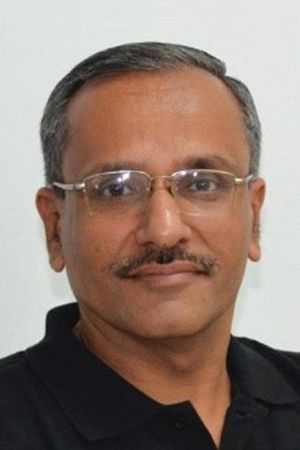Dr. Bharat Bhushan, Executive Director, Radius Synergies International Pvt. Ltd.

In a land where shimmering rivers and bountiful monsoons paint a picture of abundance, the harsh reality of India’s water crisis is a stark contrast. Despite holding 4% of the world’s water resources, the nation grapples with a looming water scarcity, its parched earth bearing the brunt of a growing population and the relentless march of climate change. The sobering statistic of 26 major droughts in the past 150 years underscores the gravity of the situation. As Union Minister for Housing and Urban Affairs, Hardeep Singh Puri aptly stated, “The water crisis in India is not due to lack of water resources but primarily because of mismanagement.”
Amidst this backdrop of scarcity and mismanagement, a ray of hope emerges in the form of smart water metering technology. This cutting-edge solution empowers communities to take control of their water destiny, offering real-time insights and data-driven decision-making capabilities. By leveraging the power of smart meters, we can collectively embark on a journey towards water sustainability, one drop at a time.
Nation Parched
India’s water crisis is a complex issue with multiple contributing factors. The country’s burgeoning population, currently exceeding 1.3 billion and expected to reach 1.5 billion by 2030, making it the most populous country in the world, puts a significant strain on its water resources. Climate change further exacerbates the problem, as changes in rainfall patterns and glacial melt accelerate. Water pollution is another major concern, as industrial waste and untreated sewage contaminate precious freshwater supplies. Additionally, traditional water management methods are inefficient, with high levels of leakage and a lack of transparency.
Smart Water Metering to the Rescue
Smart water meters act as the digital guardians of our water supply, meticulously monitoring and reporting on consumption patterns. These intelligent devices offer a plethora of benefits:
Real-time data: Unlike their analog counterparts, smart meters provide immediate insights into water usage, enabling consumers to identify leaks, track wastage, and make informed decisions to conserve water.
Leak detection: Equipped with advanced sensors, smart meters can promptly detect even the smallest leaks, preventing precious water from vanishing underground. This not only saves water but also reduces associated financial losses.
Demand management: By providing granular data on consumption patterns, smart meters empower water utilities to implement targeted demand management strategies. This could involve adjusting water pressure during low-demand periods or offering incentives for responsible water use.
Improved billing: Smart meters eliminate inaccurate estimations, ensuring fair and transparent billing based on actual consumption. This fosters trust between consumers and water utilities.
Data-driven decision making: The wealth of data collected by smart meters can be harnessed to make informed decisions about infrastructure investments, water resource management, and conservation initiatives.
Brighter Future
The implementation of smart water metering systems across India holds immense promise for the nation’s water security. The global smart water meter market is, according to a recent report by Fortune Business Insights, anticipated to reach a staggering USD 3.07 billion by 2026, driven by the increasing urgency of water conservation efforts worldwide. India’s own smart meter market is, as Astute Analytica report suggests, poised for exponential growth, with a projected market size of USD 3,267.7 million by 2031. These figures paint a hopeful picture of a nation embracing innovation to overcome its water challenges.
Collective Responsibility
The transition towards a water-secure future demands a collective effort. From individual consumers adopting mindful water usage practices to policymakers prioritizing smart water management infrastructure, each stakeholder plays a crucial role. By embracing smart water metering technology and fostering a culture of water conservation, we can collectively turn the tide on India’s water crisis, ensuring a sustainable future for generations to come. Smart water metering is not just a technological advancement; it’s a beacon of hope in the fight for India’s water security. By harnessing its power, we can transform our water management practices, empower communities, and navigate towards a future where every drop counts. Let us rise to the challenge and ensure that India’s water story is not one of scarcity, but of sustainable abundance. In conclusion, let us honour the wisdom of Mahatma Gandhi and uphold his timeless words with reverence: “The earth, the air, the land and the water are not inherited from our fathers, but are on loan from our children. So we must be handed over to them at least as they were handed over to us.”






